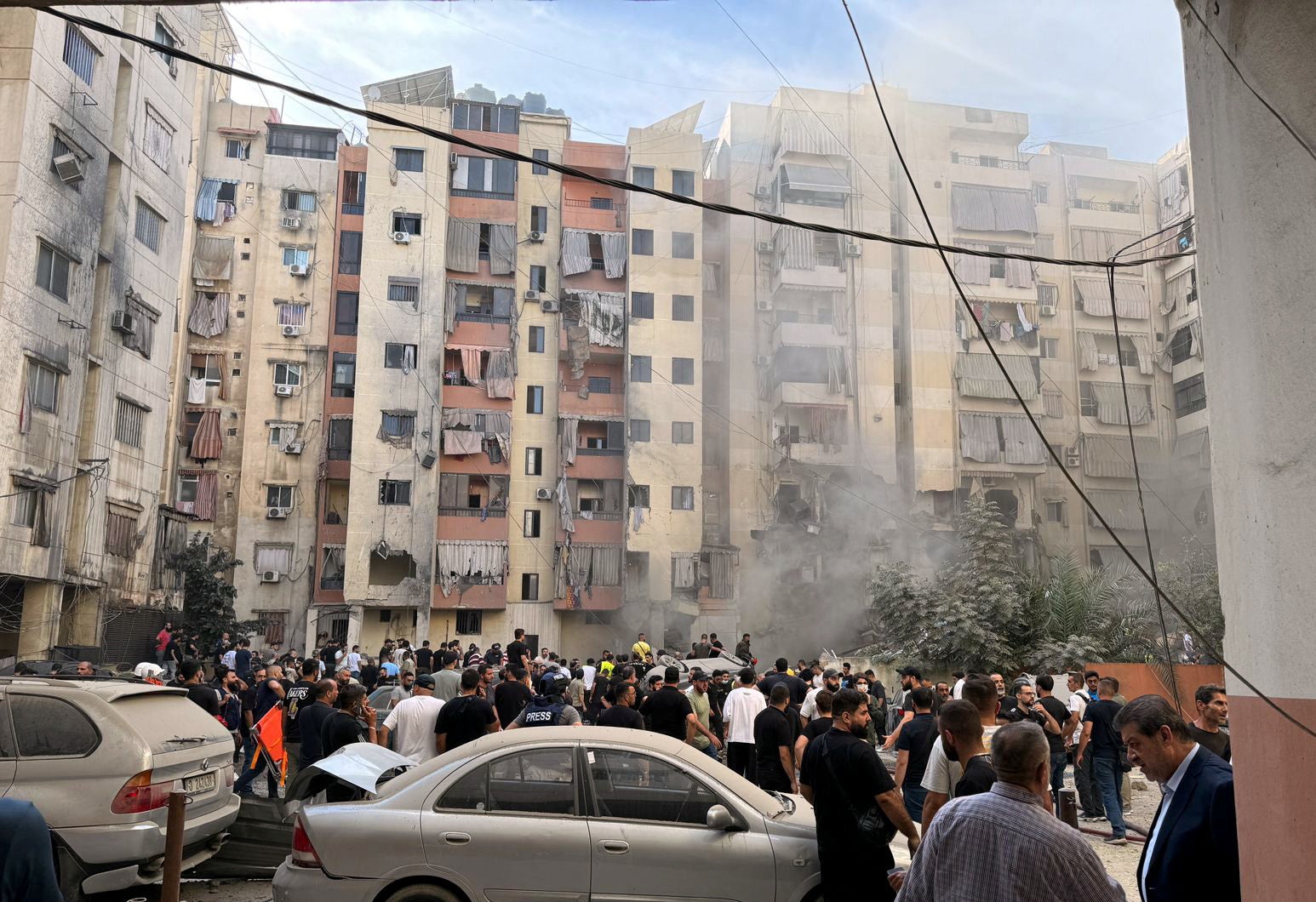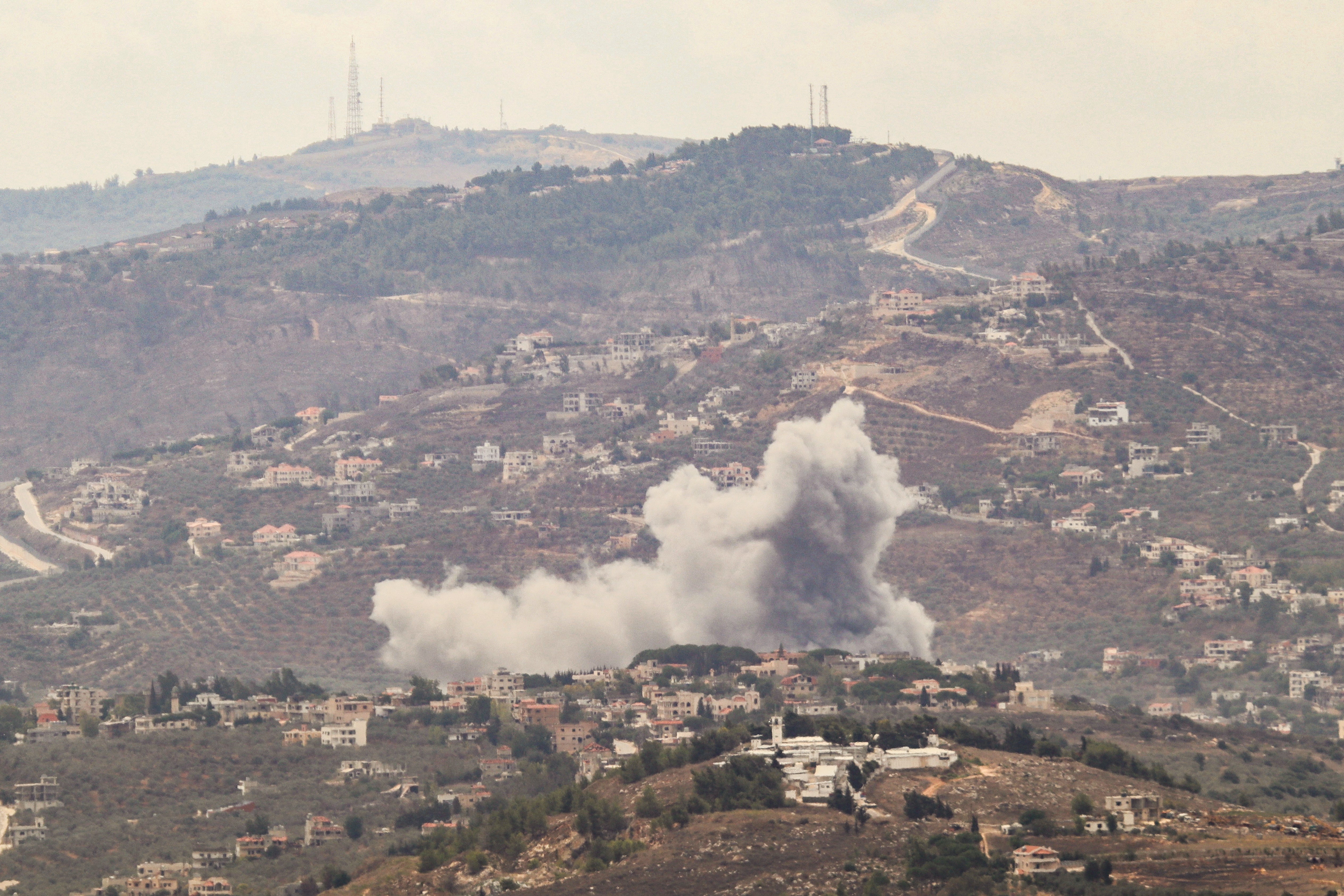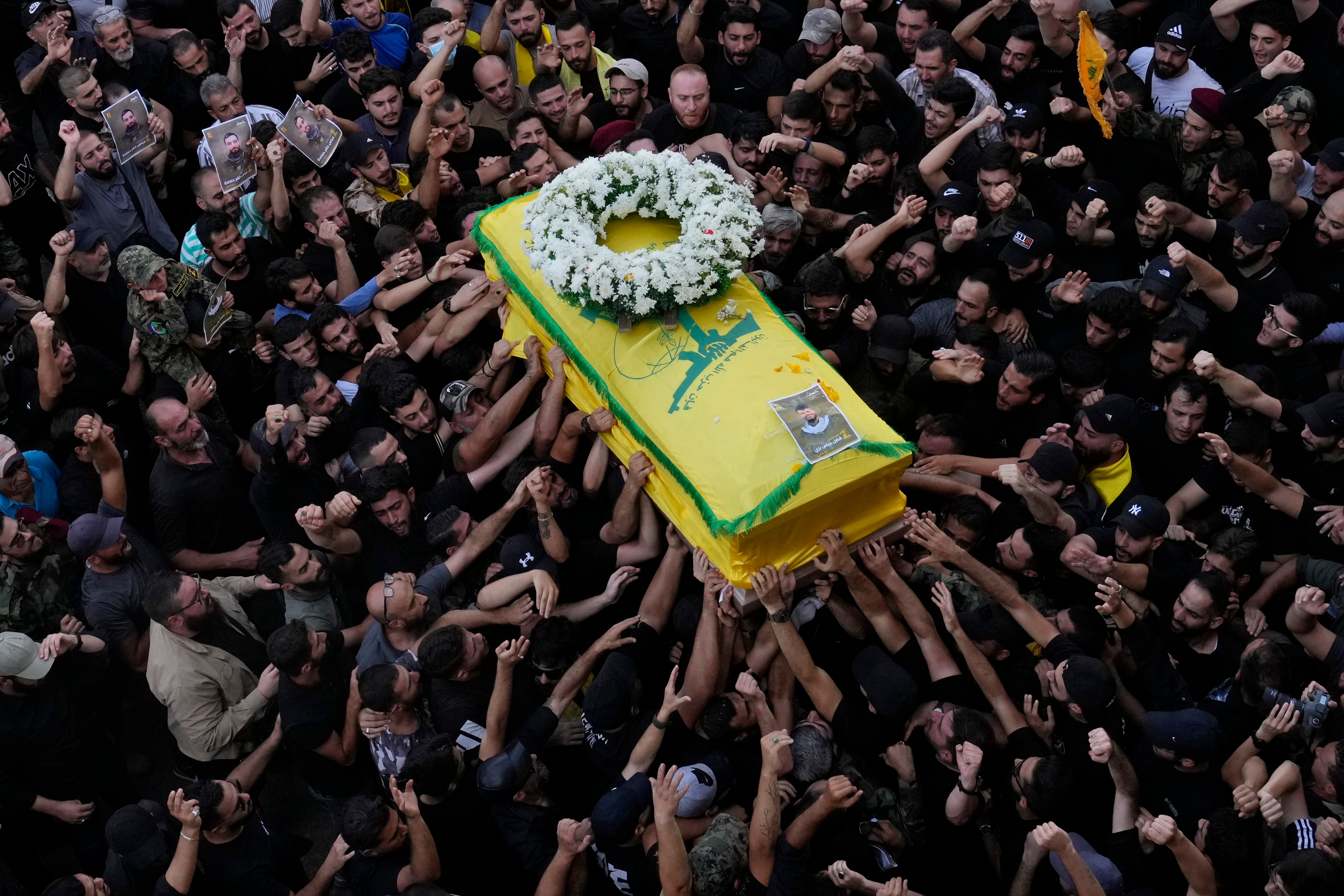Lebanese people terrified of using their phones and laptops following deadly pager attacks
Civilians in Beirut are living in fear that their laptops and mobile phones could be the next devices to be used as bombs

Your support helps us to tell the story
From reproductive rights to climate change to Big Tech, The Independent is on the ground when the story is developing. Whether it's investigating the financials of Elon Musk's pro-Trump PAC or producing our latest documentary, 'The A Word', which shines a light on the American women fighting for reproductive rights, we know how important it is to parse out the facts from the messaging.
At such a critical moment in US history, we need reporters on the ground. Your donation allows us to keep sending journalists to speak to both sides of the story.
The Independent is trusted by Americans across the entire political spectrum. And unlike many other quality news outlets, we choose not to lock Americans out of our reporting and analysis with paywalls. We believe quality journalism should be available to everyone, paid for by those who can afford it.
Your support makes all the difference.Lebanese residents are living in fear that their electronic devices could implode days after a suspected Israeli attack turned pagers and walkie-talkies into bombs.
Around 37 people were killed and thousands more wounded on Tuesday and Wednesday in the attacks which targeted Hezbollah militants but also led to deaths of children, doctors and civilians.
The attacks – which are widely believed to have been carried out by Israel, targeting Hezbollah – have raised fears that the two sides’ conflict could escalate into all-out war.
Residents are now terrified of their devices and fear there will be a third wave of attacks.
Ziad Tabbara, 61, who runs a boutique menswear shop told The Times: “Now we’re afraid of things that are not meant to scare us, like phones and laptops.”

Civilians told the BBC they are removing the SIM cards and batteries from their devices amid fears they could effectively be turned into bombs.
“We don’t know if we can stay next to our laptops, our phones. Everything seems like a danger at this point and no one knows what to do”, one anonymous local told the BBC.
Hezbollah gave its members pagers this spring to avoid using mobile phones, which were feared to be tracked by Israel for targeted assassinations. Some pagers went to active fighters, while others were given to those handling logistics, reserve fighters for possible future war or workers in civilian roles like hospitals.
People on X, formerly Twitter, have shared their fears about further explosions.
Annia Ciezadlo said: “This is an especially cruel form of psychological warfare because Lebanon is an incredibly diasporan country, where phones are a lifeline – for many, often the only lifeline – to your family. Everyone I know is afraid to use their phone right now. The cruelty is the point.”

A panel of United Nations human rights experts said in a statement on Thursday that “a climate of fear now pervades everyday life in Lebanon”.
It continued: “These attacks violate the human right to life, absent any indication that the victims posed an imminent lethal threat to anyone else at the time.”
On Friday, an Israeli airstrike hit a neighborhood in Beirut, killing at least eight people and wounding nearly 60 others, Lebanese health officials said, the first such Israeli attack on Lebanon’s capital in months.
An Israeli official, speaking on condition of anonymity told The Associated Press that the strike targeted Ibrahim Akil, a senior Hezbollah military official. It was not immediately clear whether he was killed.
British foreign secretary David Lammy chaired an emergency COBRA meeting on Friday to discuss the situation in Lebanon and ensure the UK is prepared for any escalation that might require the evacuation of British nationals.
Join our commenting forum
Join thought-provoking conversations, follow other Independent readers and see their replies
Comments